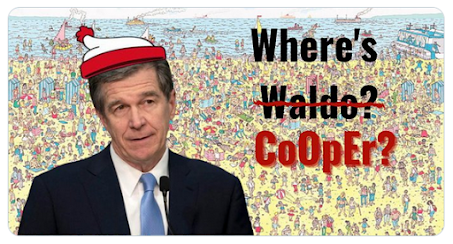PolitiFact advertises its "In Context" feature as a means of allowing readers decide, considering the surrounding context, the meaning of a politician's words.
The idea's fine in principle. But it takes principles to pull off an idea that's fine on principle and PolitiFact has a tough time with that. Consider PolitiFact's Nov. 1, 2024 feature about comments made by former President Donald Trump.
The third paragraph reminds readers of the ostensible purpose of the "In Context" feature:
With widespread interpretations of Trump’s remarks, we’re using our In Context feature to let voters review his comments in their original context and reach their own conclusions.
We say this "In Context" passes better as a prejudiced anti-Trump editorial.
Why do we say that?
Even the part of the comment taken completely out of context puts PolitiFact's headline in question.
Trump, appearing with Tucker Carlson (via PolitiFact's story):
Later, Trump added "I don’t blame (Dick Cheney) for sticking with his daughter, but his daughter is a very dumb individual, very dumb. She is a radical war hawk. Let's put her with a rifle standing there with nine barrels shooting at her, OK? Let's see how she feels about it. You know, when the guns are trained on her face."
What would support the conclusion that Trump describes a "firing squad"? Trump, after all, doesn't use that term in the out-of-context quote or elsewhere.
One element of the statement might reasonably support the "firing squad" idea: Trump describes a number of people (nine) aiming guns at Cheney's face.
What elements of the description fail to support the "firing squad" idea?
- Cheney has a gun in Trump's description. What "firing squad" execution offers a gun to the target?
- The guns are aimed at Cheney's face. Firing squads traditionally aim at the heart.
- The alternative explanation, that Trump was talking about war hawks typically not needing to face battle themselves, has nothing that argues against it unless we count anti-Trump prejudice.
"You know, they're all war hawks when they're sitting in Washington in a nice building saying 'Aw, gee, we'll, let's send, uh, let's send 10,000 troops right into the mouth of the enemy.' But she's a stupid person." (transcript ours, comments start at 7:36)
So, even though PolitiFact gathered no reasonable evidence showing Trump was referring to Cheney facing a "firing squad," the fact checkers (actually liberal bloggers) put their own biased interpretation right in the headline to prejudice their readers.






